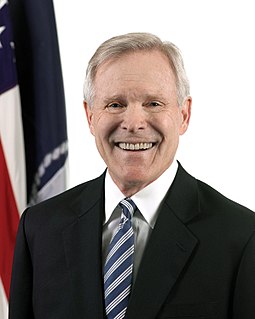A Quote by Walter Mosley
It was mid-November 2008. There were pirates taking ships with impunity in African waters, terrorists punching holes in Indian security, China sinking towards depression because Americans were afraid to buy cheap goods for Christmas, and the richest nation in the history of the world was talking about how to keep a budget.
Related Quotes
A lot of Americans desperately want to believe that China is full of poor people who can't innovate, and the only goods they make are cheap, toxic rip-offs our Western brands. They want to believe the only reason the Chinese economy is surging is because the West wants cheap goods and China knows how to make them that way.
The graveyard is the richest place on earth, because it is here that you will find all the hopes and dreams that were never fulfilled, the books that were never written, the songs that were never sung, the inventions that were never shared, the cures that were never discovered, all because someone was too afraid to take that first step, keep with the problem, or determined to carry our their dream.
African-Americans were dispossessed of the land by being brought over here in slave ships, whereas Indians were on the land and fought literally wars against Europeans for control of that land. And that history of dispossession, you know, if you look at the treaties, it's very interesting. Everyone thinks that Indians were ripped off in their treaties. If you look at the first round of treaties from about 1800 to the Civil War, tribes secured over 150 million acres. I think it may have been 144 million acres in those treaties. That's a large amount of real estate.
The [Israelis] believed - they were possessed of an absolute certainty and conviction - that 'terrorists' were in Chatila. How could I explain to them that the terrorists had left, that the terrorists had worn Israeli uniforms, that the terrorists had been sent into Chatila by Israeli officers, that the victims of the terrorists were not Israelis but Palestinians and Lebanese?






































